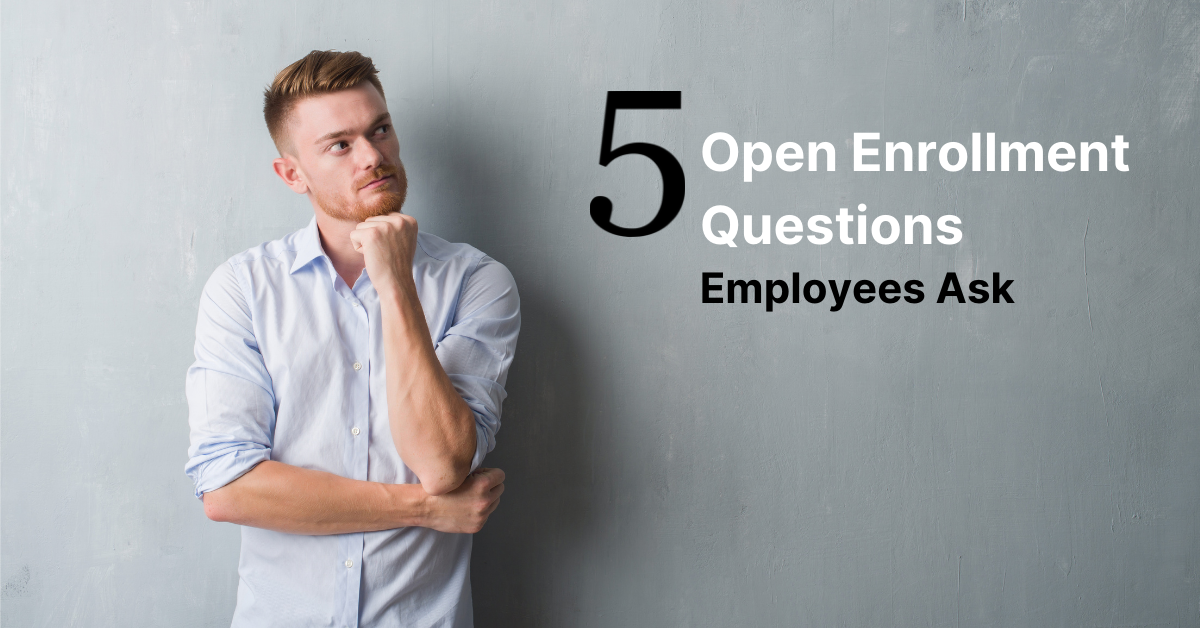When it comes to choosing where to work, employees say that benefits play a huge role in their decision to stay or find employment elsewhere. Educating your employees will benefit your company from both a cultural and a financial perspective. If your workforce does not understand the details of their benefits, they may not be taking full advantage of them. With the open enrollment period for many companies fast approaching, here are the top five questions our Benefits Educator, Ileana Miranda, most often receives:

What's the difference between a deductible and an out-of-pocket maximum?
Deductibles: The amount you pay before your health insurance starts paying benefits. This doesn't include services covered by a copay or covered in full before the deductible needs to be met. You will receive 100% coverage for preventive care or wellness visits every 12 months, for example.
Out-of-pocket maximum: This is the total amount you will be responsible for during the year for all in-network treatments. It includes the deductible, copays, and coinsurance. You are covered at 100% for the remainder of the year after you have reached your maximum out-of-pocket expense.
what is the difference between an HMO AND POS/PPO PLAN?
POS (Point of Service)/PPO (Preferred Provider Organization) health plans contract with medical providers, such as hospitals, doctors, diagnostic centers, ambulatory services, and urgent care facilities to create a network of participating providers. Although usually more expensive, the plans offer a greater range of providers and include out-of-network and out-of-state benefits. Unlike some HMOs, PPO plans do not require a referral from your primary care physician before visiting an in-network healthcare provider.
HMO (Health Maintenance Organization) plan, you must stay within your network of providers to receive coverage and are protected by the negotiated contracts. Traditionally, HMO networks are smaller but offer lower premiums. Some require electing a PCP (Primary Care Physician). PCPs are general practitioners, family practitioners, internists, and pediatricians that provide and coordinate your healthcare. Additionally, HMOs offer peace of mind with no balance billing.
what is coinsurance?
The coinsurance is the amount you pay after you have met your deductible. In other words, it's your portion of the cost of medical service, and the insurance company pays the rest. In the case of a plan with 20% coinsurance, you will pay 20% of the claim, and the insurance company will pay the remaining 80%. The coinsurance is only applied after the deductible has been met. To put it simply, coinsurance is a payment split between the insured and the insurance company.
who are eligible dependents?
Each employer and state will have a different policy. You are typically eligible to claim a dependent if you are married and have a dependent child(ren) up to 26 years old. Domestic partners may also qualify as dependents.
can I make changes to my plan mid-year?
Employees eligible for employer-sponsored healthcare plans may enroll in those plans during the annual enrollment period. Outside of that time frame, a Qualifying Life Event (QLE) is required to change coverage. QLE's include loss of health coverage, changes in the household such as a baby, marriage, or divorce, change in residence, etc. Proof of a QLE is required to change your insurance.
Estimates have shown only one-third of employees show up for meetings that aren't mandatory. Employers should take a proactive approach to ensure that their benefits are clearly understood, adopted, and utilized. By making the meetings mandatory, you communicate how seriously you take your employees' health and wellbeing, which will help with recruitment and retention, and claims. It also encourages your employees to learn about their health plans and make educated decisions. You spent the time and effort to develop a robust benefits package - wouldn't you like to ensure that your employees use and understand them? Think about making your meetings mandatory during open enrollment this year, and everyone will benefit from it.
GET STARTED WITH A FREE CONSULTATION
Creating a custom benefits package is critical for companies of all sizes.